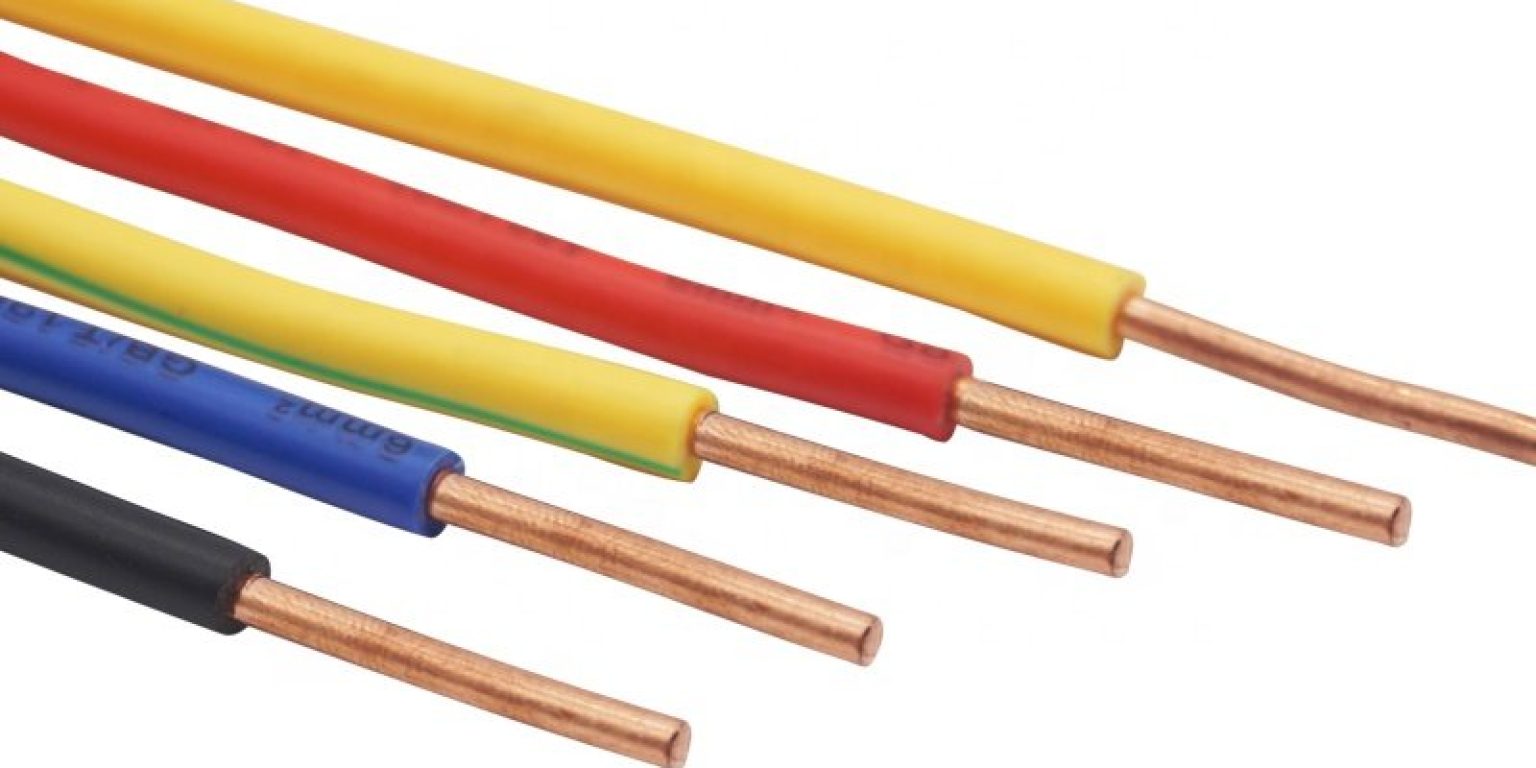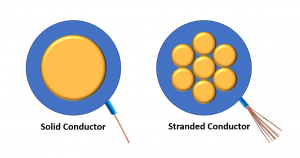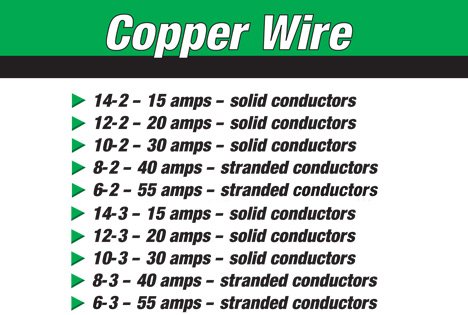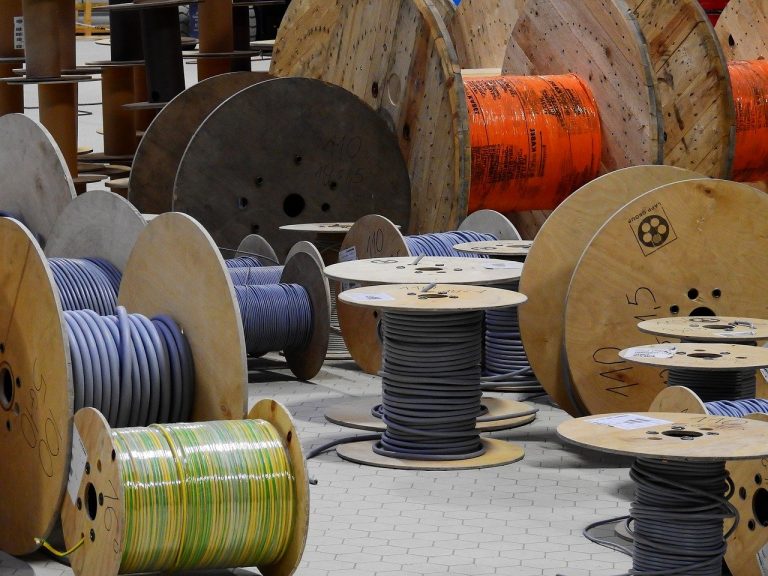If you often find it challenging to make a choice between a solid wire and a stranded wire, you are not an exception. A considerable proportion of individuals across the globe often face significant challenges when making this decision. Most of us attempt to seek clear-cut answers from trained electricians concerning the most appropriate choice of wire.
However, the truth is that there is no clear-cut answer in this particular situation. Whether or not a solid core wire is an ideal option is entirely dependent on the nuances of your specific application. In some situations, one type of cable will function better than the other. Without electrical wiring knowledge, it is difficult to examine situations when a solid electrical wire will function better than a stranded wire.
Generally speaking, a solid cable is cheaper than a stranded cable because its production is inexpensive. Some people might opt for a solid-type wire over a stranded wire because of its affordability. Do you think it is advisable to consider a cable’s price over its functionality?
A wrong wire choice is most likely to require repetitive replacements and maintenance. So, if you choose the solid option where a stranded one would be more appropriate, you will incur more expenses. This post will help you avoid such a situation by providing expert responses to common questions concerning the solid copper wire dilemma.
1. Is solid or stranded wire better?
As I mentioned earlier, there is no clear-cut answer to whether a solid or stranded wire is better. The appropriate choice varies depending on your intended application. However, it is important to note that a solid wire is a better electrical conductor. It also provides lofty, steady electrical features over an extensive range of frequencies.
Due to its solid nature, it is jagged and more likely to withstand corrosion and vibration. In spite of all these features, it is not always advisable to settle for a solid core wire. This type of electrical wire is not always the better option. There are several considerations when it comes to choosing the better option between a solid and stranded wire.
A solid cable consists of a single strand whereas a stranded one comprises several thin wires twisted into a bundle. Each of them has various distinctive advantages depending on your specific application details. A stranded wire is ideal for applications that require constant winding and cable twisting. It works better in intricate applications such as circuit board wiring due to its flexibility
On the other hand, a solid wire is ideal for outdoor wiring and heavy-duty applications. This type of cable is durable even under the worst conditions and more compact compared to stranded wires. The smaller surface area of a solid-type wire doesn’t negate its current carrying capacity. For example, the current-carrying capacity of a 22 gauge solid wire is equivalent to that of a stranded wire of the same size.
2. Can you mix a solid and stranded wire?
I am sure that at one point or another, we have all come across the phrase ‘shortcut is always dangerous’. I can confidently say that that phrase is applicable in this particular case. Any attempt to mix a solid wire and a stranded wire is can be equated to taking shortcuts. Why do I think so?
Well, the only reason you might want to mix them is that you ran out of cable and you have an extra one but it is not exactly similar to the former. You also might have run out of stranded cable and you want to finish up the remaining part of the project with a cheaper solid cable.
It is possible to mix a solid and a stranded wire but that does not necessarily mean that you should do it. Connecting a solid copper wire to a stranded wire is a relatively complex process. There is a significant chance that something may go wrong. When dealing with electricity, a slight mistake may cause huge damages. So, why should you take that risk?
The best way to avoid the temptation of mixing wires is to ensure that you purchase the right length of cable. For instance, if you settle for an 18 gauge solid wire, you must ensure that its length is sufficient to serve your wiring needs completely. Electrical cable manufacturers, suppliers and retailers often sell cables per meter. It is best to consult a wiring expert concerning the exact wire length for your project.
3. Solid wire Vs. Stranded wire
Determining if you need a solid wire or a stranded wire is often a big challenge. As I indicated earlier, each wire has its advantages and disadvantages subject to your specific application. The best way to compare these two types of cables is to explore their benefits and cons across various spheres including weather resistance and elasticity, to name a few. Here is a point by point comparison of a solid core wire versus a stranded wire;
ü Wire current carrying capacity
As I mentioned earlier, solid wire is thicker and has a smaller surface area compared to a stranded wire. The thin wires that make up stranded wires also contain air gaps between them. Essentially, a solid cable is a better conductor of electricity than a stranded wire owing to the features mentioned above. Does this mean that a solid-type wire has superior current carrying capacity?
Generally speaking, a cable’s carrying capacity is largely determined by its size which is often denoted in American Wire Gauge (AWG) standard. So, the primary question that you should be asking is; are solid wire sizes larger than those of a stranded wire?
Contrary to popular believe, the ultimate overall size of a conductor remains the same whether it comprises multiple strands or a single solid conductor. A 24 gauge solid wire is still a 24 AWG wire, to put it simply. Under similar conditions, a stranded wire of the size has an identical current-carrying capacity.
ü Flexibility
Logically, a stranded wire is more flexible than a solid copper wire. It can sustain repeated bending and flexing without damage. If you use a solid variation for flexing applications you will most likely incur repeated expenses due to constant replacements.
ü Routing
Between solid wires vs. flux core, the flux option is ideal for routing applications due to its flexibility. Sensibly, a stranded wire offers greater bending capabilities, making it easier to route whenever you incur hurdles along the wiring path.
4. Solid or Stranded wire for house wiring
Each cable has its own advantages depending on your wiring needs. So, which one is more advantageous when it comes to house wiring? Well, there are several factors that you have to consider before answering the question posed above. What kind of environment do you have to deal with whenever house wiring is involved?
Do the cables need to be moved constantly? Is flexibility a necessary feature when dealing with house wiring? These are some of the main questions you ought to ask yourself when deciding whether to choose a solid wire or a stranded one for house wiring.
The main advantage of a stranded wire is its flexibility. House cables are generally installed behind walls and ceilings. Consequently, flexibility is not one of the critical requirements of house wiring. Most people use a solid copper wire for house wiring. This type of wire is more advantageous for house wiring due to several reasons including;
- It is cheaper than a stranded wire
- The small surface area of a solid cable makes a huge difference especially when you are dealing with several electrical wires in a restricted space.
- It is easier to screw a solid wire into a switch or receptacle.
Essentially, a solid wire comes in handy when dealing with house wiring. Still, you need to note that there are different types of solid cables designed for specific applications. For instance, a 14 gauge THHN solid wire is suitable for open housing structures such as a car garage.
5. Stranded versus Solid wire amperage
Generally speaking, a cable’s amperage load is determined by its gauge. However, as electrical current is transmitted through a wire, a skin effect occurs. What is a skin effect? Well, the current closest to the cable’s outer layer, in simple terms, its skin, is subjected to magnetic fields. When current is subjected to magnetic fields, it tends to dissipate into the air. Between a solid copper wire and a stranded one, which one allows more amperage dissipation?
As I mentioned earlier, a solid wire has a smaller surface area compared to a stranded wire. A small surface area minimizes current dissipation. A stranded wire has air gaps between the strands and a larger surface area than a solid one. It allows more current to dissipate therefore, it is safe to say a solid wire has better amperage than a stranded wire.
Last Updated on May 30, 2021 by Richard





